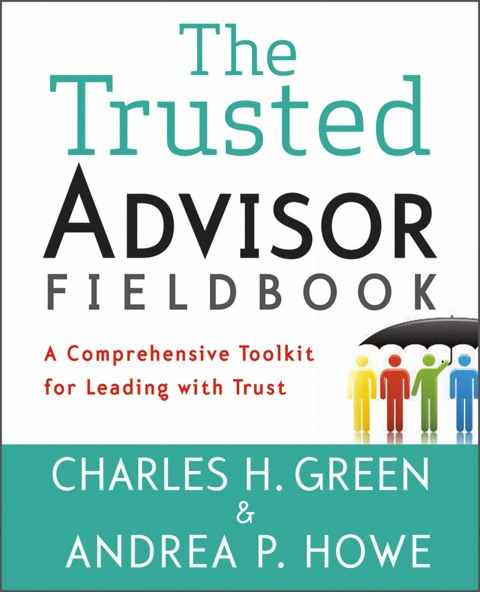Real People, Real Trust: An Entrepreneur Wins with Partnership
John Dunn has worn many hats in his 25 years as a professional including consultant, change management expert, bed and breakfast owner, and most recently, screenwriter. Find out how John used the principles of trust-building to create a wildly successful business venture—strategies anyone can use to win business while making a difference for a community.
It Starts with a Mindset
John and I met a few months ago while working for a mutual client. Over lunch one day, I learned about his business ventures including the bed and breakfast he launched and ran from 2001 to 2006. I was immediately struck by his out-of-the-box approaches to developing a successful business—starting with a mindset of collaboration not competition.
“There were five B&Bs in the town we were serving, including mine. I suppose I could have looked at the other four as competition, but I believed there were an abundant number of customers and no way to accommodate all of them 365 days a year without leaving business on the table. I knew that the only thing preventing us from tapping into the full potential of the market was letting the public know about all of us. And I knew the best thing to do would be to have all five inns working together, viewing ourselves as a unit and viewing the hotels in town as our collective competition.
“My life philosophy is there’s plenty of everything—customers, money, everything. You just have to direct it to you.
“I’ve also been in business long enough that I know some people prefer data over a philosophy. So, I researched the number of people who came to our town and determined what we were missing in the market. The numbers showed clearly that if we created a strategic alliance and pooled our resources, we’d then have a competitive advantage over large hotels with big marketing budgets.”
An Offer to Help
John took a systematic approach to convincing each B&B to adopt his mindset and approach—first, he built trust individually, then he approached the group as a collective.
“Of the other four B&Bs, two were already established and the other two were in the process of opening. I took time to introduce myself to all the other owners and talked to each of them about what I believed was unique about my inn. I shared information readily and freely. Then I offered my help with anything they needed. For example, I had relationships with the city that could help the new businesses figure out how to comply with city codes. Once all the B&Bs were open and running, I went back and proposed my idea of working together to be stronger in the marketplace.”
Team Agreements
I asked John if he got push-back. “There was some resistance at first, and we had to have the conversation about how we could really collaborate rather than compete. One critical success factor was agreeing to be transparent. When we were upfront with each other we found we were able to make it work. We also decided we all had to be in full agreement to do something, and that we were all responsible for ideas on how to execute. For example, we decided that everyone would decorate for the holidays. Then someone came up with the idea of having a local florist put a uniquely decorated tree in every inn. One tree was raffled off and the others were available for sale. A lot of people benefited from the creative ideas that came out of our partnership—not just us.”
Systems Thinking
John says another key was in thinking of all the B&Bs as a whole.
“I’m a big believer in win/win. Sure, I would’ve loved it if my B&B filled first. But my over-riding belief was if we had 35 rooms and 50 people looking for rooms, even if mine were the last ones filled they’d still be filled.
“I kept reminding myself that the way you get more done is through leverage. For example, we could leverage money by collectively pooling our marketing budgets. So when the Chamber of Commerce held an event and wanted tables for all the inns, we had a joint table marketing all of us. That meant we could take turns at the event so we could all be at our inns keeping our customers happy. We instantly had 12 to 16 staff members to do marketing instead of two or three.”
Putting the Customer First—For Real
John and the other B&B owners consistently put customer needs ahead of any one B&Bs’ needs.
“We agreed that the primary way to differentiate from the bigger hotels in town was through our personal connections with customers and through exceptional customer service. So if a customer called my B&B and I didn’t have what they needed, I’d put him on hold and call each B&B until I found what he was looking for. Others did the same. We all viewed the entire inventory as our own, we knew it well, and we were committed to doing whatever it took to help our customers out.”
John’s mindset of “customer” extended to the community as well.
“I knew another way we could all differentiate was by promoting our historical buildings. So twice a year, in the spring and near the December holidays, we rented a trolley and opened up all the B&Bs to the public so they could take historical tours. I established a relationship with the historical neighborhood association for a nearby neighborhood so that our tours were timed to align with theirs, giving people more opportunities to see historical properties. And I partnered with the local historical museum by including admission into the museum as part of the tour ticket. All the pieces worked together and everyone gained something.”
“Real World” Application
The results John got speak for themselves: a 25% increase in occupancy rate over a year (which is a big number in the hotel business) and double the number of advertising impressions without any additional investment.
I asked John if he thought his approaches could create a similar return in the corporate world. His answer was a resounding, “Yes.”
“When you think about it, what we did was actually quite simple: we looked at ourselves as a unique product and created strategic partnerships that would create leverage so we could all grow and be better. Companies have been doing this for years. Take ERP implementations. I worked for a global consulting firm that had the capacity to build their own product, but instead joined forces with SAP. That partnership created a much more compelling value proposition for the customer. The key is to maximize opportunity with as few resources as possible.”
John emphasizes that the strategy isn’t viable without the mindset that goes along with it.
“I do a lot of consulting with nonprofits and the hardest thing to get through their heads is the notion of leveraging their values and products with others’ values and products. They have trouble with it because their organizations are built on a mentality of scarcity—they’re always fighting for budget, asking for money, and have a perception there’s never enough. So they naturally think, ‘I can’t partner with another because they might steal my donor list.’
“If nonprofits believed there was an abundance of money out there for everyone, then every single one of them would be successful. It really comes down to mindset, mental models and belief systems. That’s what I spend time on when I’m consulting with them.”
Dream Big, Win Big
There’s a unifying theme in all John’s endeavors: how to manifest the impossible with the possible. He’s jazzed about his new career as a screenwriter―three of his scripts have been optioned by known producers. John says, “Making movies is a way to interact with bigger and bigger audiences and change lives on a much grander scale.”
Here’s to big dreams with big results.
Connect with John on LinkedIn .
——–
The Real People, Real Trust series offers an insider view into the challenges, successes, and make-it-or-break-it moments of people from all corners of the world who are leading with trust. Check out our prior posts: read about:
Chip Grizzard: A CEO You Should Know;
Ralph Catillo: How One Account Executive Stands Apart;
Anna Dutton: A Fresh Perspective on Sales Operations;
Heber Sambucetti: A Learning Consultant’s Approach to Leadership;
and Janet Andrews: What Trust-based Strategy Consulting Looks, Feels, and Sounds Like.

 Anthony Iannarino, creator of
Anthony Iannarino, creator of 

 On March 30, Warren Buffett’s Berkshire Hathaway
On March 30, Warren Buffett’s Berkshire Hathaway  Get the Trust Primer volume 11 here
Get the Trust Primer volume 11 here Wed. Mar. 16th Global Charles H. Green
Wed. Mar. 16th Global Charles H. Green